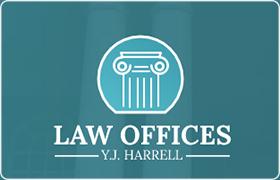 Miami Divorce & Family Law Lawyers, Florida
Miami Divorce & Family Law Lawyers, Florida
Sponsored Law Firm
-
 x
x

Click For More Info:
-
The Law Offices of Y. J. Harrell, PLLC
3350 SW 148th Avenue Suite 110 Miramar, FL 33027» view mapDivorce & Family Law When Life Happens, Let Us Help
We understand that some family matters can be planned well in advance, but some arise without warning. We will address your matter competently and efficiently.
800-997-4250
Sponsored Lawyers
1-10 of 67 matches
Employment, Family Law, Entertainment, Business Organization
David K. McGill was born in Detroit, Michigan and raised in Dayton, Ohio. Mr. McGill specializes in Entertainment Law, Business Affairs and Consulting. His global entertainment services include but not limited to record label development, artist development, drafting and negotiation of entertainment contracts, digital and mobile music content, copyright, and trademark. Mr. McGill has been active in the entertainment industry since 1996. Mr. McGill also focuses on foreclosure defense law and labor and employment law, stemming from race discrimination, race harassment, sexual harassment, and wrongful termination. Mr. McGill is a graduate of University of Miami Law School. During his law school years, Mr. McGill was a recipient of the Dean's Scholarship, served as VP of International Moot Court and was a member of the Entertainment Sports Law Society, and Black Law Student Association. Mr. McGill received his undergraduate degree from Thomas More College (B.A. Management Info Systems, Cum Laude) and his M.B.A. from Xavier University (Business Entrepreneurship) David McGill's professional affiliations include the Entertainment and Sports Law section of the Florida Bar, American Bar Association, Dade County Bar Association Young Lawyers Section, Omega Psi Phi Fraternity Inc., and the Wilkie D. Ferguson Jr. Bar Association. Mr. McGill is also active in the community and volunteers as a mentor and legal consultant to inner city youth.
(more)Criminal, Divorce & Family Law, Dispute Resolution, Administrative Law
"I want you to feel comfortable with me as your advocate in the courtroom." More than twenty-one years of handling a myriad of legal issues in both transactional issues and Trial experience in Family Law, Criminal Law, and Civil Litigation. All facets of Litigation and Trial Experience in the Family Division, Criminal Division, Circuit Civil Division, Juvenile Division, Support Matters, and Probate Division, in Miami- Dade County in and for the Eleventh Judicial Circuit of Florida. Extensive Court Appearances and Hearings in Federal Court in the Southern, Middle, and Northern Districts of Florida. Trial and Evidentiary proceedings in the following Florida Counties for Circuit Court proceedings: Miami-Dade County, Broward County, Palm Beach County, Martin County, Monroe County, Collier County, Polk County, Hendry County, Port St. Lucie County, Orange County, Pinellas County, Duval County, Pasco County, and Lee County. Certified by the Supreme Court of Florida as a Family Mediator. Extensive Alternative Dispute Resolution Training and experience In civil and family law disputes.
(more)Family Law, Divorce & Family Law
Criminal, Domestic Violence & Neglect, DUI-DWI, Felony, Federal
Mr. Stroleny is a lifelong Coconut Grove resident whose family has been part of the community for more than a century. He attended MAST Academy and earned his bachelor’s degree from Florida International University, later continuing on to FIU College of Law. During law school, he gained early courtroom experience while working at a leading probate and guardianship firm, where he learned the value of dedication, preparation, and client-centered representation. He was elected class president, served as President of the FIU Trial Team, and led the team to a first-place national victory at the 16th Annual National White Collar Crime Mock Trial Invitational in Washington, D.C. After graduating with honors and receiving the Trial Advocacy Award, Mr. Stroleny joined the Miami-Dade State Attorney’s Office as an Assistant State Attorney. He handled thousands of matters, including traffic offenses, misdemeanors, domestic violence charges, DUI cases, and serious felony prosecutions. His time as a prosecutor provided a deep understanding of courtroom strategy, evidentiary challenges, and the realities of the criminal justice system. He also gained extensive experience in both trial and appellate work. Earlier, through his juvenile-division internship, he managed hundreds of juvenile misdemeanor and felony files, taking numerous cases to trial and earning strong results. Today, he brings this comprehensive background to his criminal defense practice, representing clients in matters involving domestic violence, DUI, and felony charges with diligence and respect. If you are seeking dedicated representation for a criminal, DUI, domestic violence, or felony matter, contact Mr. Stroleny at 305-615-1285 or complete the firm's online contact form to discuss your case.
(more)Real Estate, Business, Accident & Injury, Divorce & Family Law, State Appellate Practice
Antonino Hernandez is a practicing lawyer in the state of Florida. Mr. Hernandez received his J.D. from the Boston University School of Law in 1997.
(more)Criminal, Domestic Violence & Neglect, DUI-DWI, Family Law
When Russell Spatz left the Office of the Dade County State Attorney, then State Attorney, Janet Reno wrote to her former Division Chief: "You have demonstrated the best in prosecution as an Assistant State Attorney and we will miss you. On behalf of all the people of Dade County I thank you for your very dedicated public service." Since that time, Mr. Spatz has tried to live up to those words by championing the causes of his clients, defending and protecting them. Mr. Spatz endeavors to not only represent clients in court but give them the peace of mind of knowing there is one whom they can trust to assist them in dealing with the overwhelming difficulties we all face in life from time to time. Mr. Spatz, is a trial attorney with over 33 years experience, is devoted to providing the highest quality representation and committed to finding answers, settling disputes and assisting in all manner of legal issues. His personal service and professionalism lend themselves to offer his clients the highest degree of personal legal representation.
(more)Criminal, Divorce & Family Law, Lawsuit & Dispute
During her 33 years of practice, Roberta Mandel has argued more than 1,000 appeals in every Florida appellate court, the Florida Supreme Court, the Eleventh District Court of Appeal, and the United States Supreme Court. With approximately 650 reported decisions, she offers an unparalleled depth of experience. She has also been involved in countless trials during her career. Mandel is often involved from the inception of a case in the trial court through the appellate state. She says, “It’s advantageous for trial attorneys to have experienced appellate attorneys involved in trial court litigation so all viable arguments are preserved for appellate court review.” Mandel is AV Preeminent® rated by Martindale-Hubbell®, and has been designated a Legal Leader by the Miami Herald and a Florida Super Lawyer for many years. She began her career working on high-profile criminal cases. Starting in 2004, she went on to head the appellate departments of two law firms. Among her more notable cases was litigation stemming from Anna Nicole Smith’s death in Florida, which garnered worldwide media coverage. In 2010, Mandel founded her own full-service trial and appellate litigation firm, the Mandel Law Group. There, she represented Fortune 500 companies as well as small businesses and individuals in civil and criminal matters. She was one of the first attorneys to effectively argue that trial attorneys who successfully represent homeowners in foreclosure actions are entitled to fee multipliers. Mandel also handles complex as well as simple divorce cases in both the trial and appellate court arenas.
(more)Workers' Compensation, Personal Injury, Employment, Immigration, Divorce & Family Law
Throughout his legal career, Robert has placed a strong emphasis on serving the client’s best interests, providing aggressive defense handling and focusing on cost containment. - See more at: http://www.fla-esq.com/attorneys/robert-m-potter/#sthash.dYZLB0xJ.dpuf
(more)Civil Rights, Medical Malpractice, Divorce, Aviation, Government
Sagi Shaked is a dedicated advocate for justice in the realm of personal injury law, specializing in cases involving catastrophic injuries and wrongful death. With a fervent commitment to championing the rights of victims and their families, Mr. Shaked has recovered tens of millions for injured clients. His areas of expertise span many cases, including those involving motor vehicle accidents, product liability, medical negligence, nursing home abuse, trucking accidents, and more. Notably, Mr. Shaked achieved a milestone at the age of 28 by securing a multi-million dollar verdict for a single personal injury lawsuit, establishing himself as one of the youngest lawyers in the United States to accomplish such a feat. Since then, he has continued to secure top settlements and verdicts in cases involving motor vehicle accidents, motorcycle accidents, trucking accidents, traumatic brain and spinal cord injuries, medical malpractice, and wrongful death. As a highly experienced Florida Bar Board Certified Civil Trial Lawyer, Mr. Shaked brings a wealth of knowledge and skill to his practice. His educational journey includes graduating with honors from Florida International University in 1996 with a B.S., followed by an equally distinguished graduation with honors from Nova Southeastern University Shepard Broad Law Center in 1999. Throughout his career, Mr. Shaked's overarching goal has remained constant—to passionately pursue justice for those whose lives have been forever changed by the negligence of others. His tireless advocacy and commitment to the well-being of his clients has earned him the respect and admiration of colleagues and clients alike.
(more)Divorce & Family Law, Child Custody, Alimony & Spousal Support, Family Law
I, attorney John Elias, have dedicated more than 30 Years to helping Florida clients obtain meaningful and lasting family law solutions. I fully understand how the outcome of a legal proceeding can affect a family’s future for years to come and am compassionate to emotional challenges that arise. Due to my extensive experience and familiarity with the local court system, I can provide clients with overview of their case and help them set realistic expectations. This method of providing upfront and honest legal representation has allowed me to obtain many successful outcomes and earn my client’s loyalty. I receive a lot of referrals from former clients and other lawyers.
(more)



 Yvette Harrell Miramar, FL
Yvette Harrell Miramar, FL Practice AreasExpertise
Practice AreasExpertise










